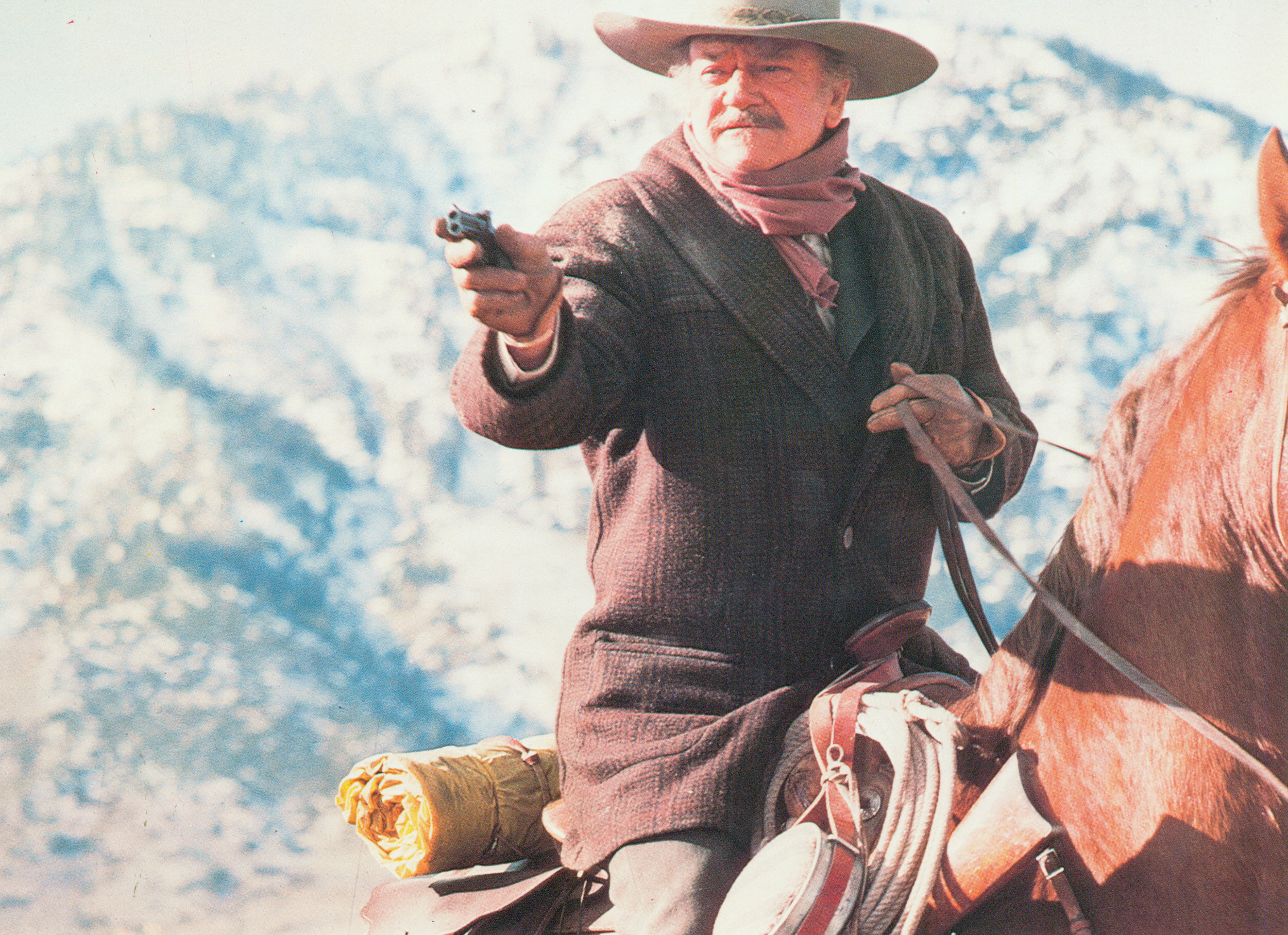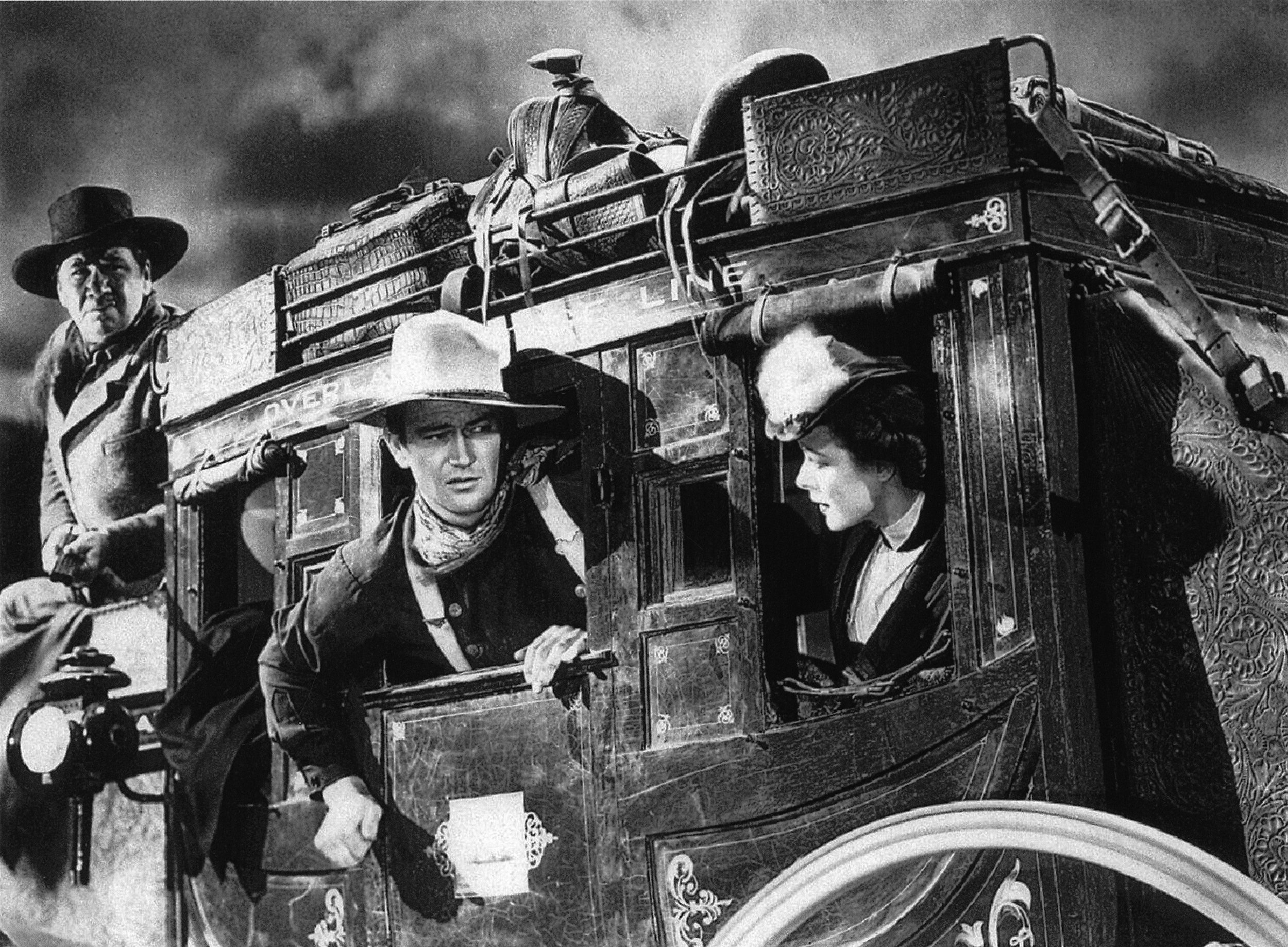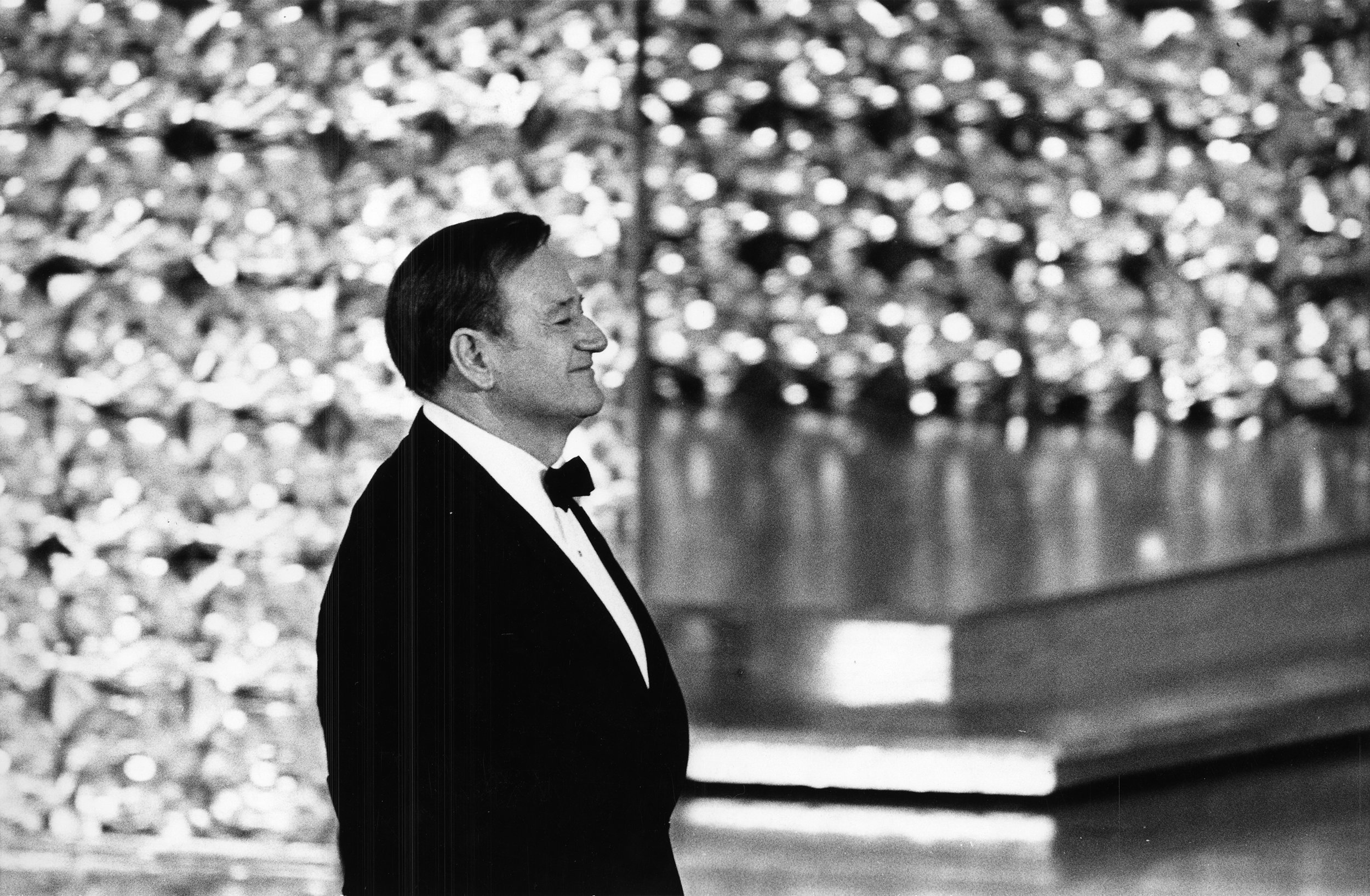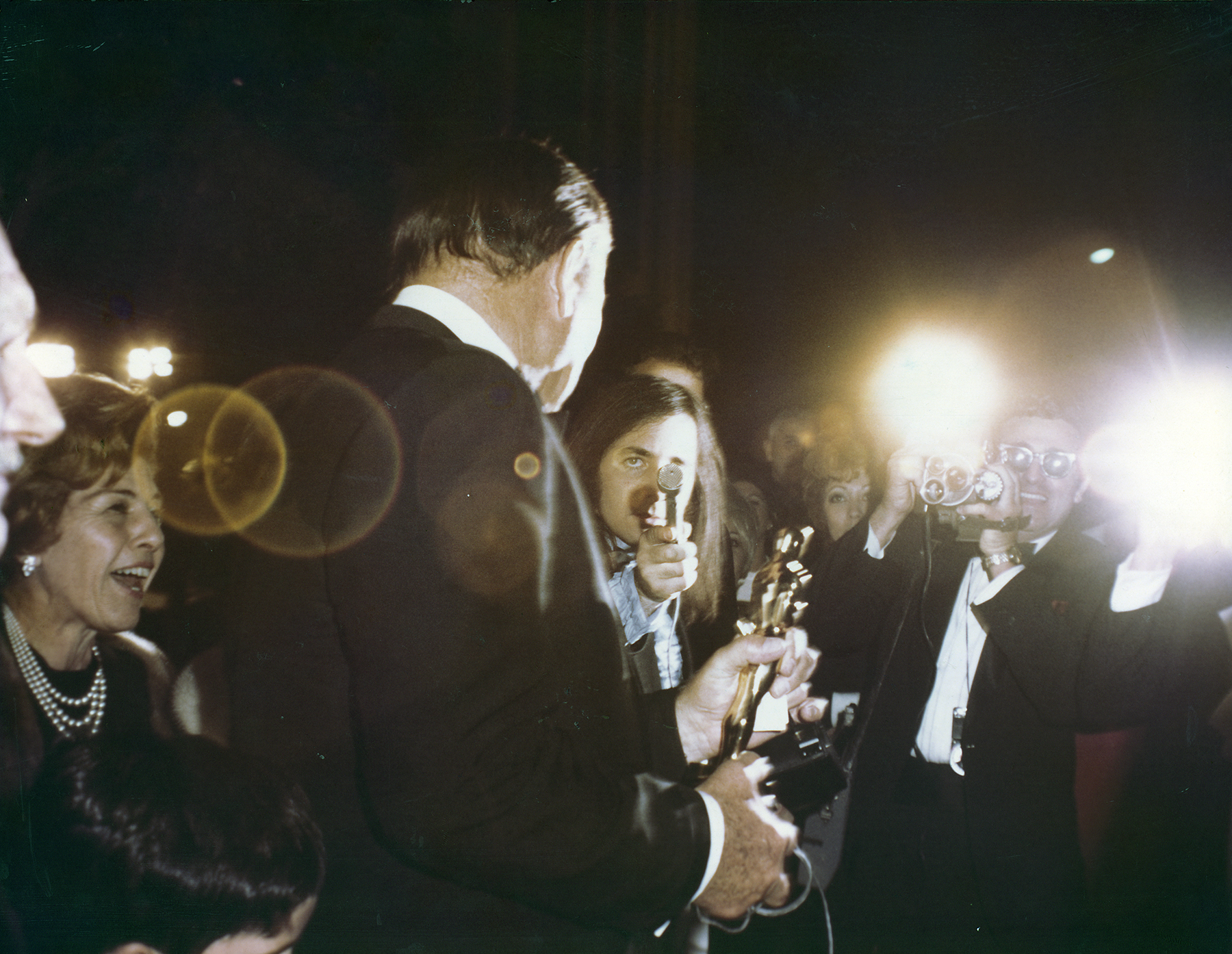In iconic fashion, John Wayne portrays an ailing gunfighter in the Shootist (1976), and what would also be his final of 200 films throughout a 50-year career. Two years following, John Wayne would undergo heart surgery and again battle cancer.
Forty years after the death of John Wayne in 1979, his legacy—and legend—endures.
Written by Constance Dunn
Around five in the evening on June 11, 1979, John Wayne passed away from cancer at UCLA Medical Center in Los Angeles, surrounded by family. In life, he was a beloved actor, father and friend; in death, the 72-year-old would become something more.
The Iowa-born son of a pharmacist father and homemaker mother, Marion Robert Morrison was born in 1907, but started on the path to stardom with a move to Southern California when he was six. The star football player at Glendale High School, who grew up helping out at his father’s drugstore and working odd jobs, ended up at University of Southern California with a football scholarship.
When a bodysurfing accident ended his football plans, Wayne found employment at Fox Film Corporation, working in turns as a prop man, then stand-in and extra. Wayne’s first starring role came from director Raoul Walsh, who cast the 6’4” actor in The Big Trail (1930). It was during this time that studio executives gave him his stage name.
At 22, John Wayne was given his first major role by director Raoul Walsh in The Big Trail (1930), where he starred as trail scout Breck Coleman earning $75 a week.
In 1939, John Wayne’s breakthrough role came when John Ford cast him as Ringo Kid in Stagecoach.
Throughout the 1930s Wayne worked in a series of low-budget Westerns until his role as outlaw Ringo Kid in John Ford’s Stagecoach propelled him into stardom. For those who watched the actor in any of his over 200 films, Wayne was a walking embodiment of the ideal American male, portraying a man of courage and unfailing commitment to his values—including taking relentless action to defend them when needed. And often, with few words.
A melding of the man’s real-life personality with his screen image occurred. This, plus Wayne’s vocal defense of American freedom and support of the U.S. military are principle factors contributing to his status as an icon, an inspirational blueprint of character and the most powerful movie star in history. Forty years later, John Wayne lives on in the American psyche and in popular culture—the Harris Poll consistently includes him, the only deceased actor, among the top of their list of “America’s Favorite Movie Stars,” for one.
In 1970, John Wayne at the 42nd Annual Academy Awards receiving a Best Actor Academy Award for his performance in True Grit (1969), stating: “Wow! If I’d have known that, I would have put that eye patch on 35 years earlier!”
A big moment for John Wayne, but he always made time for people, including signing autographs and answering questions from press after the award ceremony.
The day after his death, the front page of the New York Post read: “John Wayne: Nation Mourns.” Announced as a statesman’s passing, it was an accurate reflection of a nation who had lost one of their shining stars. Like a cherished leader, over time—40 years, to be exact—John Wayne’s legacy has only grown to match his contributions to our country.
For his family, Wayne’s wish, that a cure for the disease that felled him could be found, was first honored with a public request that, instead of flowers, one could instead send donations to what was then-called the John Wayne Memorial Cancer Fund. Today Wayne’s children continue the fight in their father’s name with the John Wayne Cancer Foundation, which includes the game-changing John Wayne Cancer Institute and a skin cancer prevention program for youth, along with innovative fundraising programs.
Join us in our mission to bring courage, strength and grit to the fight against cancer – donate here.













